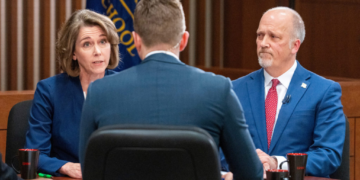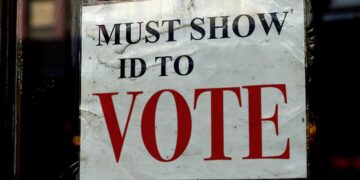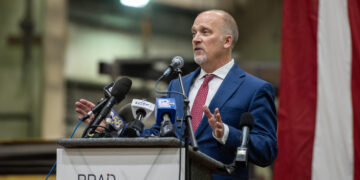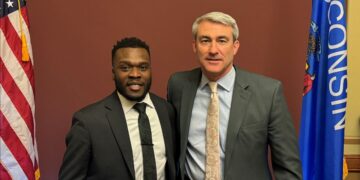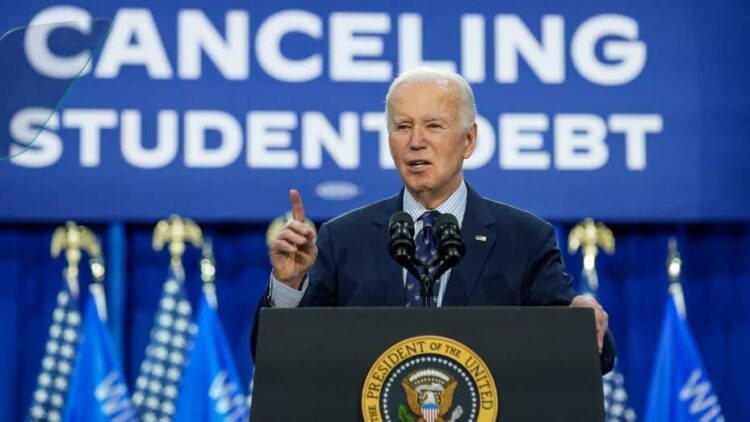President Joe Biden’s recent campaign stop in Madison wasn’t just about rallying supporters; it was about selling his latest student loan bailout program. This multibillion-dollar initiative aims to provide relief to millions of borrowers but raises questions about its long-term implications, particularly its impact on federal debt and taxpayers.
Biden’s Plan B loan- and interest-forgiveness proposal garnered attention from the media, with many outlets echoing White House talking points without delving into the program’s fiscal implications. According to Wisconsin Public Radio, the plan includes canceling debt for eligible borrowers, eliminating accrued interest for millions, and providing relief to those burdened by undergraduate and graduate loans. However, the cost to taxpayers remains a glaring omission in the coverage.
Critics, including The New York Times, have raised concerns about the potential inflationary effect and the addition to the federal debt caused by such a massive bailout. The lack of clarity on the plan’s cost raises alarms, especially considering Biden’s previous failed attempt at student debt forgiveness, which was struck down by the Supreme Court for constitutional reasons.
The timing of Biden’s bailout, coming just months before the presidential election, raises suspicions about its true intent. With polls showing a tight race between Biden and former President Donald Trump, especially in swing states, the bailout appears as a desperate attempt to sway voters, particularly young people.
Republican critics have labeled Biden’s trip to Wisconsin as part of the “Bankrupting American Tour,” accusing him of using taxpayer dollars to buy votes. Previous legal challenges and ongoing lawsuits against similar bailout initiatives highlight the contentious nature of Biden’s approach to student loan forgiveness.
Elaine Parker, president of the Job Creators Network, criticizes Biden’s bailout for bypassing Congress and failing to address the root causes of escalating student loan debt. She argues that the administration’s actions only incentivize colleges and universities to continue raising tuition fees, exacerbating the problem further.
The Obama administration’s role in the federal takeover of student lending serves as a cautionary tale, with promises of cost savings failing to materialize and student debt reaching unprecedented levels. Biden’s attempts to circumvent legal challenges and push through his agenda without congressional approval raise concerns about executive overreach.
As Biden seeks to curry favor with voters burdened by student loan debt, questions remain about the sustainability and fairness of his bailout program. With bipartisan legislation blocking executive-led bailouts and reforms stalled in the Senate, the path forward remains uncertain.
Reviewing all this, Biden’s student loan bailout represents a costly election-year gambit that raises serious fiscal and legal concerns. While providing relief to millions of borrowers, the program’s lack of transparency and potential long-term consequences warrant careful scrutiny from taxpayers and policymakers alike.



